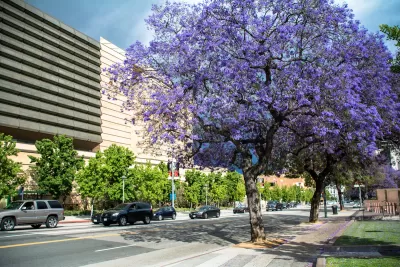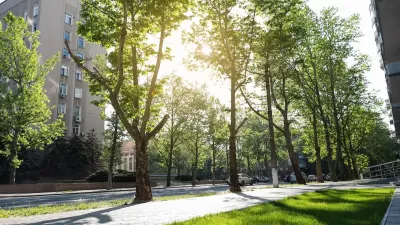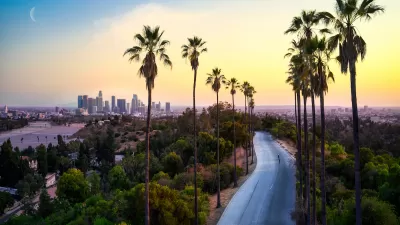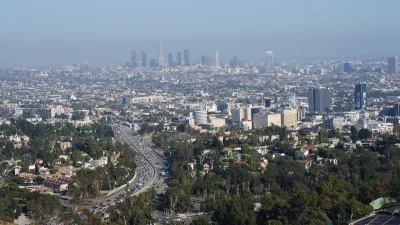The County of Los Angeles Chief Sustainability Office is leading the effort to prepare the county's first Urban Forest Management Plan.

Made up of trees on both public and private lands, the urban forest is an essential part of a healthy, thriving, and resilient community. When spread equitably and supported by other urban greening measures, a well-managed urban forest throughout Los Angeles County can deliver a wide range of benefits, such as healthier soils, biodiversity, habitats, shading from heat, and greater community health and well-being.
The County of Los Angeles Chief Sustainability Office (CSO) is leading the effort to develop an Urban Forest Management Plan (UFMP) which is a blueprint that will guide the planting of new trees and the protection of mature trees throughout the region. OurCounty, L.A. County's Sustainability Plan, calls for the development of the UFMP to ensure a climate-appropriate, healthy urban tree canopy that is equitably distributed. A key goal for the UFMP is to address inequities in the distribution of trees and tree canopy as well as the benefits they offer. Research shows that lower-income neighborhoods and communities of color often have less tree canopy.
In this article, CSO policy analyst Rebecca Ferdman addresses the following important questions and more:
- Compared to most major urban areas, does L.A. have a relatively healthy urban forest?
- Why are trees so important? Both from an ecological point of view and a quality of life point of view?
- What role do trees play in climate change? How can they help us adapt to rising temperatures, wildfires and the like?
- What can we do to make sure that all residents benefit from vibrant tree canopies?
- What kind of trees should we be planting in our communities?
- Is the iconic palm tree maybe a thing of the past?
- What is driving the County's UFMP and what do you hope to achieve?
To learn more, please read the source article.
FULL STORY: Putting Down Roots

Alabama: Trump Terminates Settlements for Black Communities Harmed By Raw Sewage
Trump deemed the landmark civil rights agreement “illegal DEI and environmental justice policy.”

Planetizen Federal Action Tracker
A weekly monitor of how Trump’s orders and actions are impacting planners and planning in America.

The 120 Year Old Tiny Home Villages That Sheltered San Francisco’s Earthquake Refugees
More than a century ago, San Francisco mobilized to house thousands of residents displaced by the 1906 earthquake. Could their strategy offer a model for the present?

In Both Crashes and Crime, Public Transportation is Far Safer than Driving
Contrary to popular assumptions, public transportation has far lower crash and crime rates than automobile travel. For safer communities, improve and encourage transit travel.

Report: Zoning Reforms Should Complement Nashville’s Ambitious Transit Plan
Without reform, restrictive zoning codes will limit the impact of the city’s planned transit expansion and could exclude some of the residents who depend on transit the most.

Judge Orders Release of Frozen IRA, IIJA Funding
The decision is a victory for environmental groups who charged that freezing funds for critical infrastructure and disaster response programs caused “real and irreparable harm” to communities.
Urban Design for Planners 1: Software Tools
This six-course series explores essential urban design concepts using open source software and equips planners with the tools they need to participate fully in the urban design process.
Planning for Universal Design
Learn the tools for implementing Universal Design in planning regulations.
Clanton & Associates, Inc.
Jessamine County Fiscal Court
Institute for Housing and Urban Development Studies (IHS)
City of Grandview
Harvard GSD Executive Education
Toledo-Lucas County Plan Commissions
Salt Lake City
NYU Wagner Graduate School of Public Service





























